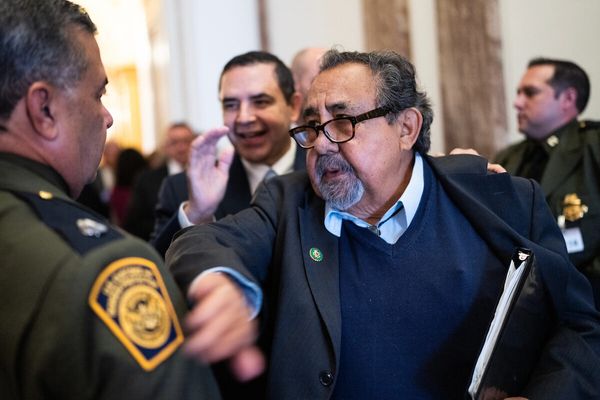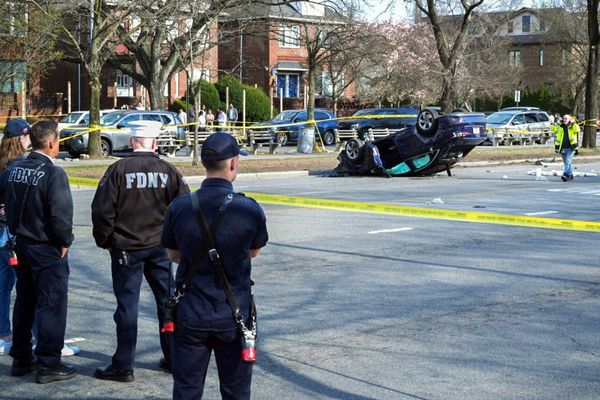
Staring down a vote of no-confidence his government was destined to lose, the Bulgarian prime minister, Kiril Petkov, sighed as he joined a video call. “It’s a tough few days ahead. We are fighting hard to stay on the right side of history,” he said.
Petkov blamed two problems for his coalition’s troubles: corrupt interests and pro-Russian influence in Bulgaria, which, he says, have “joined forces” to bring down his government.
A member of both Nato and the EU, Bulgaria has taken an unexpectedly strong pro-Ukrainian stance despite its traditional links to Russia, which prior to the war supplied about 90% of its natural gas.
“We surprised everyone in Europe and we surprised Russia with these strong policies,” he said, adding that the domestic political crisis meant Bulgaria now risked a return to its “traditional role of a soft state” regarding criticism of Russia.
Opposition lawmakers toppled the government coalition after it faced internal disputes over the budget and the issue of a veto on EU enlargement talks for North Macedonia. Petkov and his allies have called those issues a smokescreen, saying the crux is corrupt opposition to their anti-graft campaign.
But with the collapse of the government coalition on Wednesday, after just six months in power, , one upshot will be the risk to Bulgaria’s stance against the Kremlin’s invasion, which may fall victim to the political tumult.
If Petkov cannot cobble together a new coalition, he feared a “drastic shift” in Bulgaria’s support for Ukraine.
“I’m afraid that it will become a much more timid, soft state on the rhetoric against the war and that some of our exports [of aid] to Poland will be sharply decreased,” he said in an interview that took place before the vote of no-confidence. “I fear that the strong stance at the European Commission and European Council level will become much more of a hedger than a strong voice against Russia.”
That shift in policy is not certain, as most of his coalition voiced support for providing arms and other military-technical support for Ukraine. But Petkov said an interim government could quickly make a deal with Gazprom that would see Bulgaria agree to a rouble scheme to pay for gas and be more careful in its opposition to the war.
“Russia really wants to take down this government because it will show that if you don’t play with them, then governments fall,” he said. “It would be a great example of how the diversification strategy of gas does not work. And a less strong voice against them on sanctions and support for the Ukrainians is something they would prefer.”
Petkov, who campaigned as a reformer to clean up politics, led a delegation to Kyiv to meet the Ukrainian president, Volodymyr Zelenskiy, in late April, where he hammered out a deal to repair Ukrainian heavy weapons amid internal opposition to directly supplying arms to Ukraine.
He had also taken aim at the Kremlin, agreeing at one point with neighbouring North Macedonia and Montenegro to block the foreign minister, Sergei Lavrov, from flying to neighbouring Serbia, forcing him to cancel the visit.
Petkov said: “It was a simple decision. I took the decision that he is not flying. It’s as simple as that.”
The rift over the war has put him at odds with the president, Rumen Radev, a retired general and air force commander who has said deliveries of arms to Ukraine would only lengthen the war.
Petkov said the two men disagreed over the refusal to deliver Gazprom’s demand for payment in roubles, a policy that eventually led to Russia halting gas exports to Bulgaria in late April. And Radev was “very strongly against” the delivery of weapons to Ukraine via third countries. “We were very much for it,” Petkov said.
Petkov, who is 42 and educated in the west, said he believed Russian propaganda had created a strong incentive for politicians such as Radev to opt for neutrality, saying he believed 20% of Bulgarians supported Russia in the war and another 60% “don’t want to take a strong stand” on the invasion.
“And maybe the president is just looking at the populistic views. His personal views maybe coincide with them and he doesn’t see the same urge as we have to give leadership on these topics and to be on voice with the European members and to be as strong of a Nato ally as we can be,” Petkov said.
The political crisis has more immediate triggers than the war. Issues over corruption, allegations of mismanagement and EU enlargement in the west Balkans play an important role. Petkov said that several days of mass protests showed there was strong support for his government in the street. But in the halls of power, he said, the war had further polarised sides.
“The war actually showed who is on which side very clearly,” he said. “But unfortunately for the government it created more and more instability because you have to make tough decisions.”







